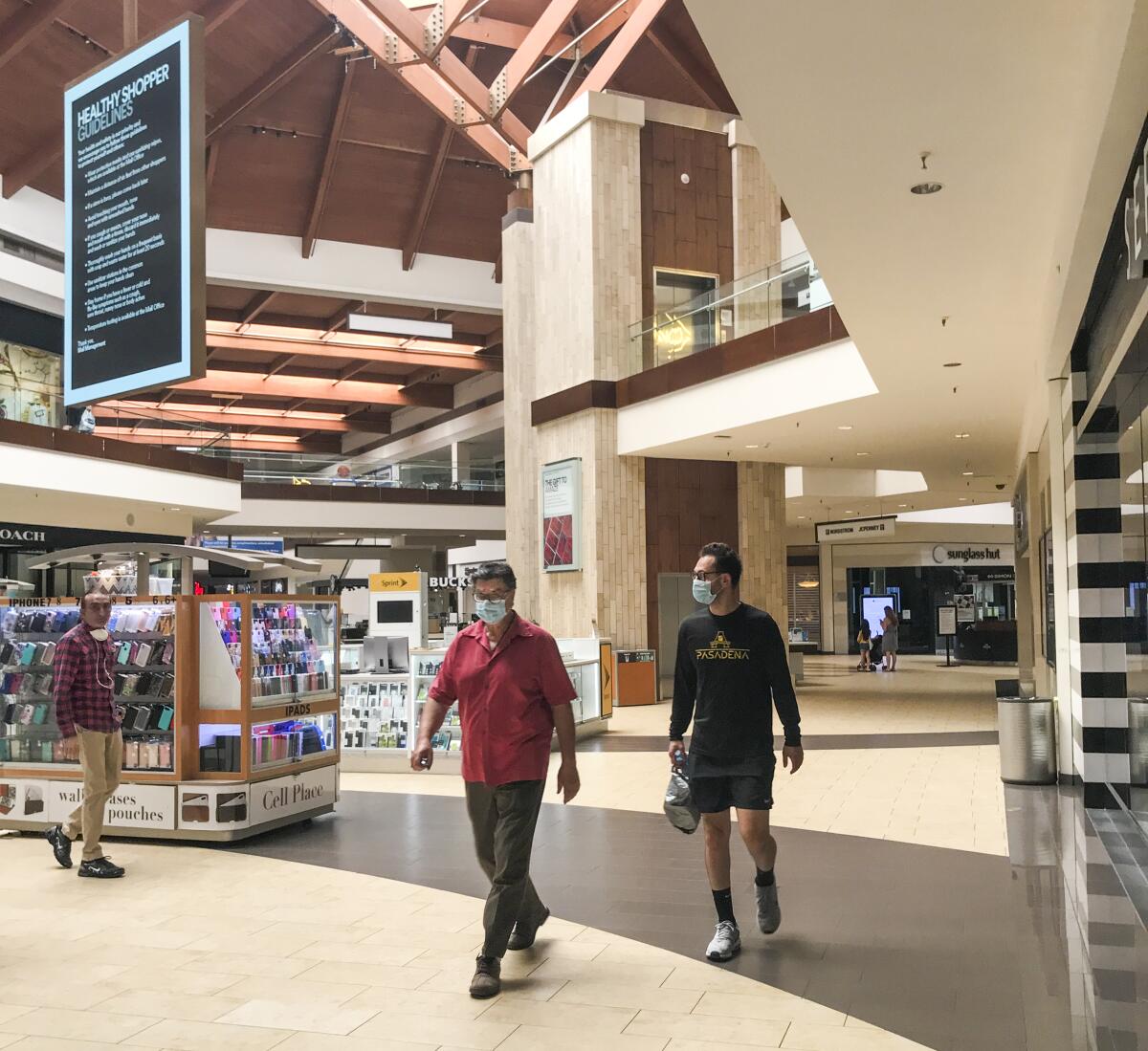Op-Ed: There’s a psychological reason we won’t return to normal right away after society reopens

- Share via
As everyday life reopens for business, the early returns may surprise you. Restaurants in Georgia have seen a mere 20% of expected activity. Shopping malls in Minnesota have reported only a handful of customers. Downtowns up and down the coasts are lighting up to empty streets. At long last, after months of itching for an end, we’re being invited back out. Where is everybody?
Psychologists aren’t so surprised. As the world out there attempts to safely resume operations, the inner world of its inhabitants will likely be slower to follow. Plan to see more bust than boom for the immediate future.
Shocking events, which surely include a worldwide shutdown in times of pandemic, hit hard and strike fast. A powerful psychological principle is negativity dominance, the idea that negative experiences pack more mental punch than equivalent positive experiences. Losing a dollar makes us feel worse than gaining a dollar makes us feel better. Bad news spreads faster than good news.
There exist more words in the English language to describe negative emotions than positive emotions. Evidence like this has been found in laboratory experiments since the 1940s and forms the backbone of modern behavioral economics. It’s how our minds are wired. Our ancestors who jumped at a first sign of threat lived to see tomorrow. Those who hung around made a quick lunch.
Today’s problem isn’t in the jumping. The coronavirus is a deadly real threat. Negativity dominance thus provides a useful perspective for understanding why the current push to return to normal is easier said than done. Psychologically, recoveries move slow and take time, even in response to genuine improvement.
In research from my laboratory, we’ve observed striking differences in people’s responses to signs of improvement versus decline, even when the evidence is identical. In one experiment, we showed participants graphs of change over time in metrics related to public health and economic prosperity. By the flip of a coin, some were told the trends signaled possible decline while others were told the trends signaled possible improvement. In reality, everyone viewed the same graphs. Despite staring at identical images, participants who thought the graphs may signal decline were significantly more likely to believe the trends were true, lasting, and deserving of a public response.
We’ve observed similar effects in experiment after experiment over the past few years, with a running tally of over 5,000 participants from all walks of life. People are quick to believe things are falling apart and slow to believe things are getting better. Negativity dominance runs deep.
In times of pandemic, this asymmetric bug in how the mind works is a welcome feature. A slow return to normal is perfectly psychologically reasonable. For many of us, the risks to health and safety are still far too high relative to the reward of a premature return. Psychologically, the world remains far too uncertain. If you’re on the other side of this equation — business owners counting on mobs of customers, event planners awaiting RSVPs — you may be wise to curb your immediate enthusiasm. It’s tempting to assume that we’re all chomping at the bit to break cabin fever, that everyone will burst with activity at the first chance of normalcy.
But as recent reports of light foot traffic reveal, a return to normal “out there” isn’t going to accompany an equivalent return to normal in how consumers feel, at least until a vaccine is widely available.
Businesses should plan for slowed consumption resurgence, such as by retaining their expanded delivery services and by promoting additional online sales. Social groups should do the same. Don’t be offended if a friend hesitates to rejoin happy hour or to crash your wedding. Don’t yet forget your Zoom password. Our comfort zones may not yet be ready for Phase 2.
Ed O’Brien is an associate professor of behavioral science at the University of Chicago.
More to Read
A cure for the common opinion
Get thought-provoking perspectives with our weekly newsletter.
You may occasionally receive promotional content from the Los Angeles Times.










